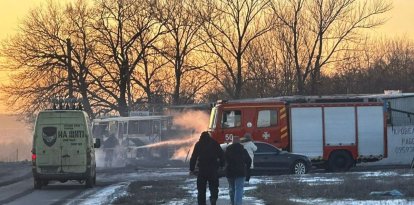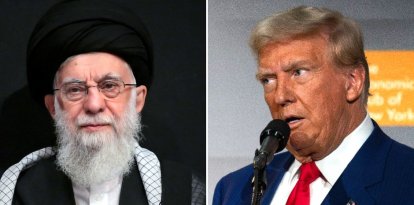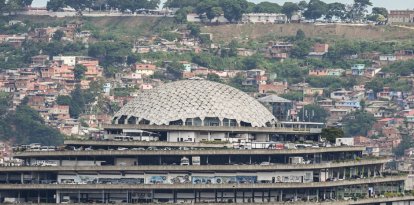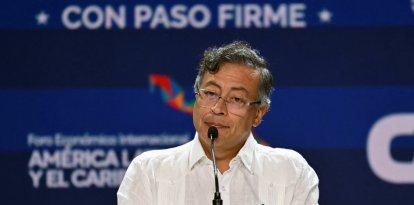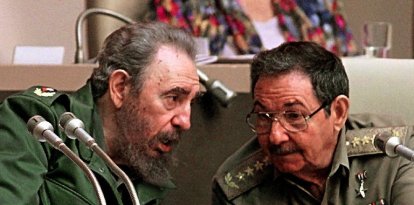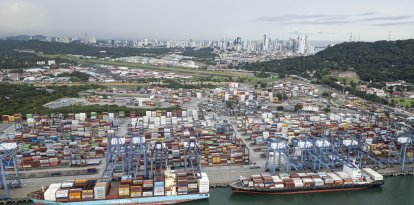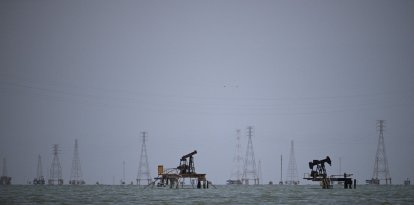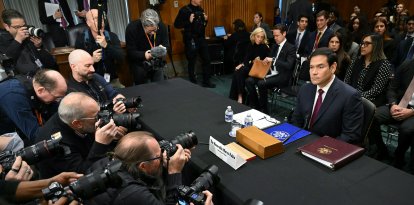International pressure grows after electoral fraud in Venezuela: Embassies are closed and an audit is demanded
The Venezuelan regime's decision to expel diplomatic missions has triggered a variety of strong responses from nations such as the Dominican Republic, Chile, Panama and Peru.

Nicolás Maduro, Venezuela's dictator.
In recent hours the international community has intensified both its formal demands as well as taken action in response to the situation in Venezuela, marking a period of unprecedented diplomatic tension. The expulsion of diplomatic representatives by the Venezuelan dictatorial regime has provoked a variety of strong reactions from different Latin American countries.
Dominican Republic closes embassy and consulate in Venezuela
The embassy and consulate general of the Dominican Republic in Venezuela have closed their doors after the regime of Nicolás Maduro ordered the withdrawal of representatives from the Dominican Republic, Panama, Uruguay, Argentina, Costa Rica, Ecuador, Guatemala, Paraguay and Peru. In a brief statement, the Dominican Republic's Ministry of Foreign Affairs provided an email and telephone number for Dominicans residing in Venezuela who require assistance.
Peru recognizes Edmundo Gonzalez as President Elect
The Peruvian government took a firm stance in recognizing Edmundo González Urrutia as president elect of Venezuela, in contrast to the announcement by the regime-controlled National Electoral Council proclaiming Nicolás Maduro the winner. "It is evident that the will to fraud exists. In an initial count on Sunday, the difference was more than 30 points in favor of Mr. Gonzalez, which was irreversible. And Mr. Gonzalez is the president-elect of Venezuela," expressed Javier Gonzalez-Olaechea, Peru's foreign minister. He also reiterated the decision to expel Venezuelan diplomats from the country, granting them 72 hours to leave Peruvian territory.
Chile demands transparency
The president of Chile, Gabriel Boric, weighed in on the expulsion of Chilean diplomats by the Venezuelan regime, describing the actions as "implausible" and pointing out a "profound intolerance to divergence, essential in a democracy." In a message shared on his social media, Boric emphasized his government's commitment to electoral transparency and human rights, highlighting the need for electoral results in Venezuela to be verifiable by impartial observers.
Panama suspends diplomatic relations
Panama's President, José Raúl Mulino, also announced the withdrawal of its diplomats from Venezuela and suspension of relations with Caracas. In a press conference, Mulino declared that this measure will remain "until a complete review of the minutes and the computer system of the vote count is carried out to know the genuine will of the people." Currently, both countries do not have ambassadors, so bilateral relations are maintained through chargés d'affaires.
Colombia condemns violent protests
Following the massive protests in Venezuela against the electoral results, the Colombian Government, through its Foreign Ministry, called for peace and dialogue in Venezuela, urging all political actors and the population to reject violence and seek democratic solutions to the electoral crisis.
"For peace in Venezuela it is necessary to know all the minutes of the final results and that these be audited by the world," said the Foreign Minister. He stressed that both the international community and the Venezuelan people expect that transparency and electoral guarantees prevail for all sectors, in order to clear up any remaining doubts about the results.
Analysis in the Paraguayan Senate
The Senate of Paraguay convened an extraordinary session to analyze the recent elections in Venezuela, where Nicolás Maduro was declared winner with 51.2% of the votes. Basilio Núñez, president of the Paraguayan Congress, emphasized the importance of reviewing the events that occurred during the elections in order to consider an appropriate response.
Costa Rica maintains limited consular relations
Costa Rica, for its part, reiterated that its relations with Venezuela are limited to the consular sphere only, after having suspended diplomatic relations in 2020. The Costa Rican Foreign Ministry informed that, although consular relations were resumed in 2023, there are no Costa Rican diplomatic personnel in Venezuela, and consular attention is actually provided from consulates in neighboring countries such as Panama, Colombia and the Dominican Republic.
Argentina disregards the results and urges the international community to do the same
Argentinean President Javier Milei rejected the results of the elections in Venezuela, calling them an "electoral swindle." Milei urged the international community not to give credence to the fraud and to work together to restore the rule of law in Venezuela, offering refuge to Venezuelans seeking freedom.
Mexico calls for review of the electoral records, but criticizes the international stance
In contrast to the actions of other countries, Mexican President Andrés Manuel López Obrador advocated non-intervention in Venezuela's internal affairs. During a press conference, Lopez Obrador called for the minutes to be reviewed and the votes to be counted, but without anticipating the likely results of the election or commenting on possible intervention by other countries.
"Let the minutes be reviewed, let the votes be counted, but let there be no a priori ignorance and let those who do not really act, in reality, in a democratic way, not stick their hands or noses in," he said.
The situation in Venezuela continues to be a critical point of diplomatic tension in the region, with different countries taking a strong stance and calling for transparency and democracy.













